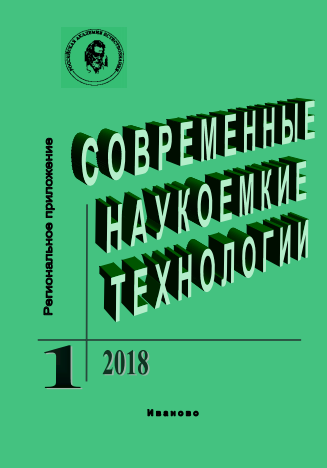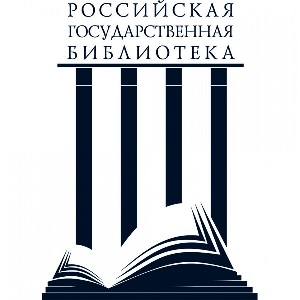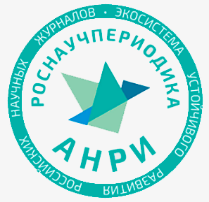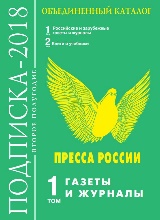ПРОЯВЛЕНИЯ И ФАКТОРЫ НАРАСТАНИЯ И ТОРМОЖЕНИЯ СОЦИАЛИЗАЦИИ ЭКОНОМИКИ
Аннотация
Рассмотрены характеристики и проявления социализации экономики. Описаны экономические теории и концепции, отражающие закономерности экономического развития функций государства, изменения самого человека тесно связанные с тематикой социализации экономики. Рассмотрены проявления социализации экономики в рамках теорий и концепций социального государства, социального рыночного хозяйства, национального богатства, новой экономики /ноономики, человеческого капитала, социальной справедливости, социальной ответственности бизнеса, общественного здоровья. Описываются факторы социализации /десоциализации экономики: краткосрочные, среднесрочные и долгосрочные, международные (внешние) и внутренние, экстенсивные и интенсивные. Вводится понятие «потенциал социализации экономики». Приводятся примеры действия факторов усиления и торможения социализации экономики на национальном и региональном уровнях. Анализируются последствия цифровизации экономики, пандемии коронавируса. Показано, что тема социализации экономики идеологически связана с поиском новой экономической модели развития, разработкой стратегической национальной идеи, формированием стратегических целей и ориентиров государства и регионов, оценкой социальной эффективности проводимых преобразований и социальноэкономической политики.
Литература
Stacey B.G. (1983). Economic socialization. British Journal
of Social Psychology, 22(3), 265–266. URL:
https://bpspsychub.onlinelibrary.wiley.com/doi/10.1111/j.2
-8309.1983.tb00592.x (дата обращения 09.01.2023).
Danes S.M. (1994). Parental Perceptions of Children’s
Financial Socialization. Financial Counselling and Planning, 5, 127-146. URL:https://www.scirp.org.
Nikiforov V.M. On the question of the criteria for the socialization of the modern economy. Bulletin of the Saratov
State Technical University. 2009. N 37. P 239-246.
Berendeeva A.B. New social and economic concepts for
assessing the transformations of Russian society and economy. Theoretical Economics. 2019. N 3. P.12-28.
Akaev A.A., Sadovnichiy V.A. The human factor as a determinant of labor productivity in the era of the digital economy.
Problems of forecasting. 2021. N 1 (184). P. 45–58.
Ovcharova L.N., Sinyavskaya O.V., Biryukova S.S.,
Gorina E.A., Nagernyak M.A., Pishnyak A.I. Social protection in Russia: the forks of the future. Questions of Economics. 2022. N 8. P. 5-31.
Bodrunov S.D. On the way to noonomics: man, technology, society. World of Change. 2020. N 2. P. 24-39.
Rodina G.A., Brillante N.S. Exogenous roots of modern
global economic crises. Theoretical economics. 2022. N 11.
P. 26-39. URL: http://www.theoreticaleconomy.ru (accessed 02.27.2023).
Berendeeva A.B., Rychikhina N.S., Korobova O.O. Approaches to evaluating the effectiveness of the implementation of social projects of the state in the regions of RussiaModern science-intensive technologies. Regional application. 2021. N 1 (65). P. 17-29.
Grinberg R. S. 30 years of economic reforms in Russia
(reflections on the origins and results). Sociological research. 2022. N 12. P. 132-138.
Vernikov A.V., Kurysheva A.A. Life on loan: institutional
aspects and their measurement. Questions of Economics.
N 10. P. 138-156.
Zhavoronkov A. V., Levashov V. K., Obraztsov I. V.,
Rostovtseva L. I., Romanovsky N. V., Trofimova I. N.,
Chernysh M. F., Demidenko S. Yu. Never-fading memory
(round table). Sociological research. 2020. N 5. P. 3–17.
Buklemishev O.V. Artificial intelligence in the public sector. Questions of Economics. 2022. N 6. P. 91-109.
Trade unions to Governor Voskresensky: “The goal was not
to close polyclinics” (12/24/2022)
https://1000inf.ru/news/104979
Abramova E.A. Features and opportunities for the development of self-employment of the population of the Russian
Federation in the context of the coronavirus pandemic
Modern high technologies. Regional application. 2021. N 4
(68). P. 6-14.
Frolova E.V., Rogach O.V., Vasilyeva E.Yu. Dysfunctions of housing provision for orphans as a factor of social
exclusion. Sociological research. 2022. N 5. P. 60-70.
Sergeev S.M. Socialization of the economy: main indicators and criteria within the framework of the programtargeted approach. Modern science-intensive technologies.
Regional application. 2022. N 4 (72). P. 6-13.
Berendeeva A.B., Ledyaykina I.I. The level and quality of
life of the population as a criterion for the social efficiency
of project management in the regions of Russia. Vestnik
Ivan. state university Ser. Economy. 2021. N 2 (48). P. 42-
Shkiotov S.V., Markin M.I. Influence of real disposable
money income of the population on the economic affordability of food in Russia. Theoretical Economics. 2021. V.
N 6. P. 119-125. http://www.theoreticaleconomy.ru
(Accessed February 27, 2023).
Human Development Index in Russia: Regional Differences
(December 2021): policy brief / Analytical Center for the
Government of the Russian Federation, P. 2. URL:
Publications/analitika/2022/_2021_long.pdf (accessed
/18/2023).
Gonova O.V., Rumyantseva V.E. Diagnostics of industrial
structural changes in the textile region (based on materials
of the Ivanovo region). News of higher educational institutions. Technology of the textile industry. 2019. N 5(383). P.
-20.
Ilchenko A.N., Gonova O.V. Integral criterion of territory
development as a basis for monitoring the economy of the
region. Proceedings of the














